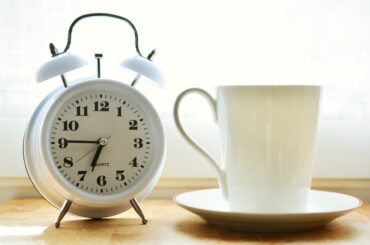How much caffeine is in your favorite coffee drink or tea? This question may seem simple, but there are a lot of factors that affect caffeine content. For example, some people like their coffee with cream and sugar which will dilute the caffeine content. Others prefer black coffee which can have more caffeine than an average cup of green tea. In this blog post, we’ll explore how to measure the caffeine content in different drinks so you can find out just how much it is!
Some drinks that are high in caffeine include coffee, tea, and cola.
The amount of caffeine in these drinks will depend on the type you’re drinking as well as how it’s made. For example, black coffee typically has more than a cup of green tea which is usually brewed with water at higher temperatures for less time to limit caffeine content.
We’ll explore caffeine content in popular drinks and then look at how much caffeine is safe per day so you know what’s too much for your body to handle!
What affects the caffeine content?
The caffeine content in coffee depends on the type of beans, how it is brewed and what kind of grind you use.
“A common misconception about caffeine’s effect on weight loss is that 200 mg per day will lead to a significant drop in pounds. However, research has shown this amount doesn’t have any statistically notable effects.”
Spilling the Beans: How Much Caffeine Is Too Much?
- Side effects of too much caffeine are sleep problems and anxiety because they disrupt serotonin levels in your brain to regulate your moods and other functions.
- There’s no set amount for drinking caffeinated beverages per day that can damage health but there are guidelines you should follow if you want to try cutting back on how much caffeine you’re consuming daily or avoid any potential negative side effects from overuse (such as stomach upset). Consult with your physician before making changes to what you drink each day!
How much caffeine is safe per day
“The FDA recommends that healthy adults shouldn’t consume more than 400 milligrams of caffeine a day—about four cups of coffee,” says registered dietitian Rania Batayneh, author of What’s Your Body Telling You?
How Much Caffeine Is In A Cup Of Coffee?
The average cup of brewed Starbucks contains about 260 milligrams, and the average cup of brewed coffee contains about 140 milligrams.
A 16-ounce bottle of Pepsi Cola contains 34mg while a 16-ounce can of Diet Coke only has 47mg per almost half the size! This is because regular colas use sugar for sweetness so they don’t need as much caffeine to give you the same level of energy.
How much caffeine does a person consume?
The average American consumes between 150mg per day (150 milligrams) and 300 mg depending on their age group. For those who don’t know how many ounces that equates to, here are some examples for comparison:
A Venti size at Starbucks has around 270mg; A 12 oz can of Coke has 34 mg, and a 16 oz. of Coke has around 64 mg; A 12oz can of Red Bull Energy Drink has 80mg of caffeine in it, the same as an average cup of coffee
The types of drinks that have high levels of caffeine are:
- Coffee (espresso) – Tea (black or green tea) – Cola sodas like Coca-Cola or even Pepsi products which contain caffeine from natural sources such as kola nuts found in cola soda recipes.
- Energy Drinks typically feature at 240 to 280 milligrams per serving but there is no “cap” on how much you may consume for the day, so be careful with what you drink!
- Lattes will vary depending on the size of your coffee cup and how much milk is in it.
- Cappuccinos are at around 150 milligrams per serving; Espresso, brewed coffee, or instant variety typically have about 100 milligrams per serving
How Much Caffeine Is in Coffee?
A typical American coffee is brewed at about 200-250 milligrams per eight ounces and a double espresso has approximately 100 milligrams of caffeine. If you have a cup or two every day, that’s not too much; but if you’re drinking three cups a day on top of other caffeinated drinks, then it may start impacting your sleep patterns (even though some people will say they are great after consuming this amount). The good news: You can gradually reduce caffeine intake by decreasing consumption over time and/or switching to decaf. Side effects like headaches may eventually disappear since coffee also contains other substances like magnesium that can help relieve constriction.
Different coffee drinks contain different caffeine levels. A medium-sized cup (12 ounces) of brewed coffee contains about 100 milligrams, while an espresso has close to 300 milligrams. Side effects: Those with high blood pressure may want to avoid caffeinated beverages since they can increase the risk for heart attacks and other cardiovascular problems. Drinking more than 500 mg per day – which equals five cups or ten espressos – could lead to nervousness, sleeplessness, irritability, tremor (shaking), stomach upset as well as worsening depression.”
How Much Caffeine in the Gevalia cup?
12 ounces of coffee brewed with this brand of instant coffee contains 110 milligrams of caffeine, which is a little more than one-third the amount found in a typical Americanized cup or two every day. But if you’re going to drink three cups for your daily intake, then there are 270 milligrams per day – and that’s close to what many experts recommend as an upper limit. Side effects: A headache might be just around the corner; since it also has guarana extract (which is an additional source of caffeine), you may feel jittery after drinking several cups instead.
How much caffeine in Starbucks cappuccino?
A tall size 16-ounce drink from Starbucks contains about 330 milligrams of caffeine. Side effects: Drinking more than 500 mg per day – which equals five cups or ten espressos – could lead to nervousness, sleeplessness, irritability, tremor (shaking), stomach upset as well as worsening depression.”
How much caffeine is in hills bros cappuccino drink mix?
A cup from Hills Bros Cappuccino Drink Mix contains about 50 milligrams of caffeine. Side effects: Some people experience weight loss when they have an extra 200 mg per day, but this is not advised for those who are pregnant or nursing and can cause gastrointestinal issues like diarrhea if consumed too quickly.”
This is how you measure caffeine for your favorite coffee drink or tea
Frequently Asked Questions
What coffee drink has the most caffeine in it?
| Biohazard Coffee The most caffeinated drink is Biohazard Coffee, with 928 mg of caffeine per 12-oz. mug. For comparison, most energy drinks contain between 250 and 350 mg caffeine content in servings that vary between 8 and 16 oz. |
What is the weakest coffee drink?
| An espresso shot is the weakest coffee you can get in terms of caffeine content. One shot of espresso comes with 60 to 100mg of caffeine while other coffee drinks start with at least 80 to 100mg of caffeine. Though espresso has the most caffeine per volume, it still gives you the least caffeine per drink. |
How do I know how much caffeine is in my coffee?
| If you measure your beans by volume (with a scoop), a heavier and denser light roast will produce more caffeine. Whereas if you measure by weight, the dark roast coffees will have more caffeine. |





